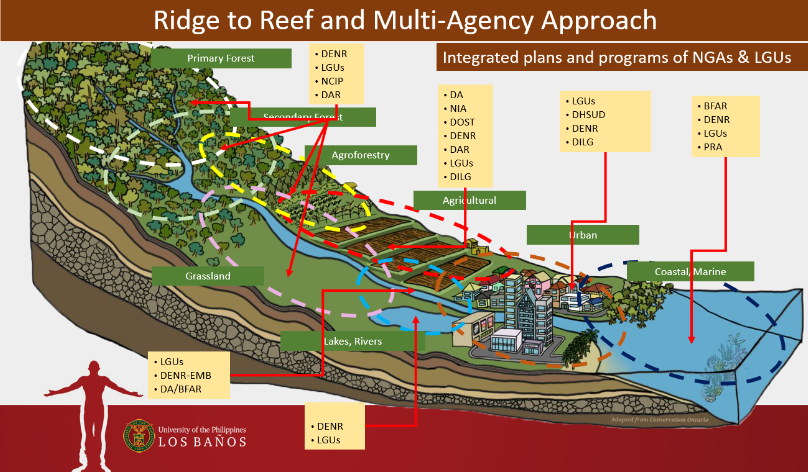Ridge-to-Reef approach: the needed integrated gov’t response to climate change, says environmental expert

“There have been many government initiatives over the years in response to climate change, but there’s still a lot to do in terms of integrating these plans and programs,” said Rex Victor O. Cruz, Professor Emeritus at the University of the Philippines Los Baños.
Although 1.5 °C is a global target, the temperature increase and associated impacts will vary locally, according to the 2019 Study on the Implications of Intergovernmental Panel on Climate Change’s (IPCC) Special Report on Global Warming of 1.5°C by the Department of Environment and Natural Resources (DENR).
There are significant risks associated with 1.5 °C warming, including impact on the poor and the most vulnerable, but risks associated with warming are substantially lower at 1.5 °C than 2 °C warming. Limiting warming to 1.5?C, according to the IPCC, will however require prompt and immediate adaptation and mitigation actions.
Cruz, in his presentation on “Unprecedented Climate Change: Unprecedented Response,” at the 2023 Annual Scientific Conference (ASC) cited that the government, especially at the level of local government units (LGUs) already made plans and have existing programs, but these are not fully integrated. He highlighted that the risks and vulnerabilities to climate change across a ridge to reef landscape are interconnected and hence requires integrated adaptation and mitigation measures within the ridge to reef/watershed ecosystem management (R2R/WEM) framework. The ASC is organized by the Department of Science and Technology-National Research Council of the Philippines (DOST-NRCP).
The R2R/WEM framework to promote resilience of human and natural systems entails an integrated land use and development planning process where climate adaptation, mitigation and disaster risk reduction (DRR) are framed in consideration of its interactions with ecosystem protection, soil, water and biodiversity conservation, socioeconomic development, and other sectoral goals within a landscape. The R2R/WEM-based planning process will also require the engagement of concerned NGAs and LGUs along
with other stakeholders in formulating an integrated plan for the pursuit and achievement of climate change adaptation, mitigation, DRR, and other sectoral goals.
Cruz emphasized the need for an S&T-based adaptation and mitigation response where policies, plans, and programs hinge on change mindsets, building up skills, policy reforms and practices, and multi-agency collaboration. He also suggested that there should be sustained efforts in building knowledge and understanding on the interactions of various ecosystems; impacts of climate change and land use on ecosystems; responses of
human and natural systems to adaptation and mitigation; and assessment of risk associated with multiple hazards.
Further, Cruz underscored the crucial need for continuous monitoring of changes in watersheds and ecosystems in response to climate change, land use and other human activities to build empirical datasets, knowledge and tools for science-based land use and development planning.
The Global warming of 1.00C has been reached in 2017. At the current warming rate of 0.2 per decade, global warming of 1.50C could be reached and even surpassed between 2030 and 2052 unless proactive and drastic measures are implemented soon. Beyond 1.50C rise in average global temperature, Cruz said that we are looking at marked increase in the magnitude of impacts associated with extreme rainfall, floods, droughts, heatwaves, sea level rise, and intense tropical cyclones that will eventually put greater pressure to our lives, especially those living in highly vulnerable communities. (Geraldine Bulaon-Ducusin, DOST-STII)

